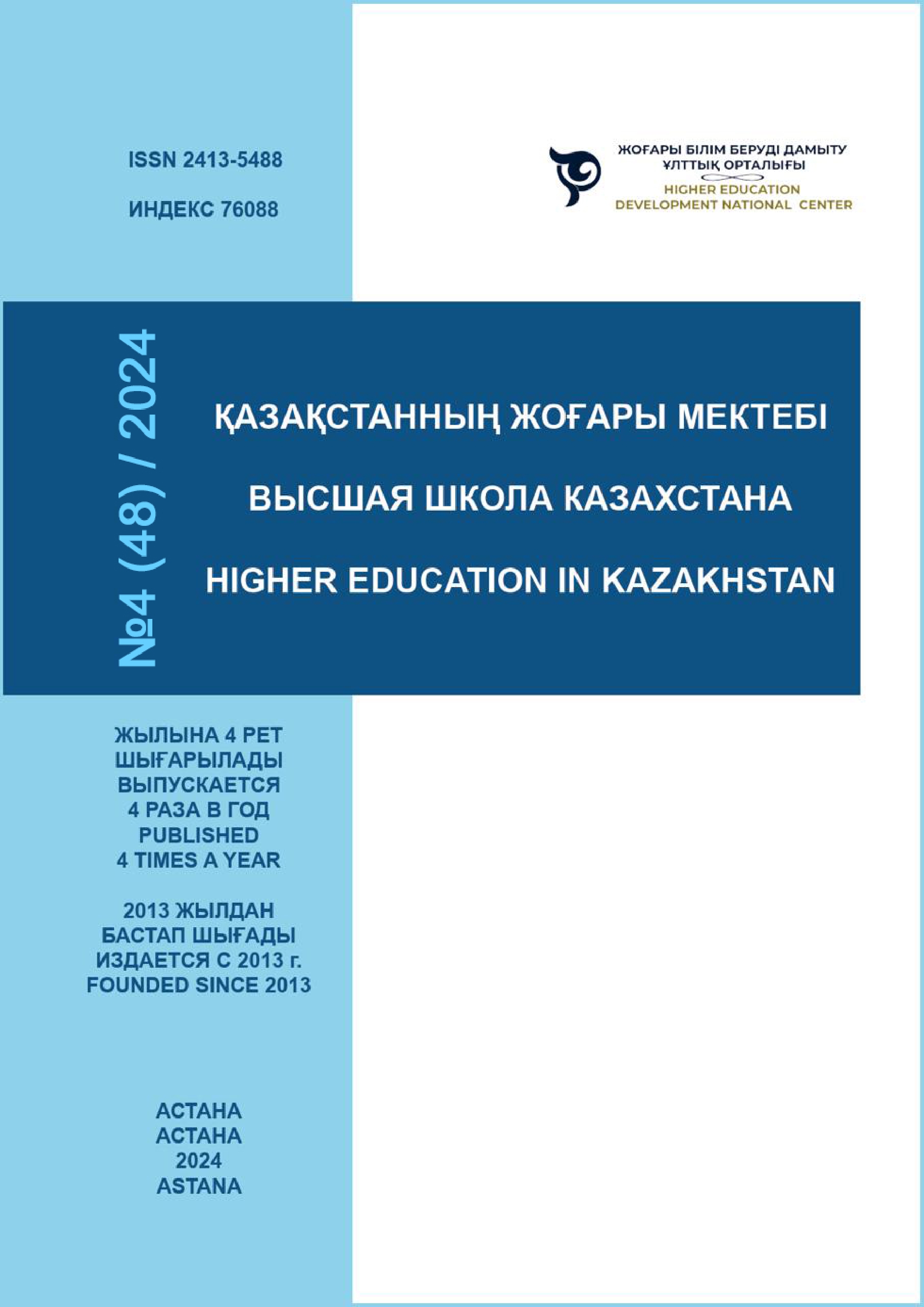ISSUES OF TEACHERS’ PROFESSIONAL DEVELOPMENT IN THE WORKS OF MODERN RESEARCHERS
DOI:
https://doi.org/10.59787/2413-5488-2024-48-4-6-16Keywords:
teacher, educational process, updated content of education, quality of education, methods and strategies of activity, professional development, advanced trainingAbstract
This article attempts to assess the current state of scientific understanding and the main trends and directions of research in the field of teachers' professional development. As a result of the study of databases of peer-reviewed scientific publications such as Web of Science, Scopus and EBSCO, as well as the works of domestic researchers, new approaches, methodologies and best practices in the field of teacher professional development were identified. The research allowed us to formulate the main provisions of organizing effective forms of teacher training that contribute to teachers' professional development
References
Abu-Tineh, A., & Sadiq, H. (2017). Characteristics and models of effective professional development: the case of school teachers in Qatar. Professional Development in Education. https://doi.org/10.1080/19415257.2017.1306788
Aslam, H. D. (2013). Analysis of Professional Development Practices for School Teachers in Pakistan: A Comparative Case Study of Public and Private Schools of Pakistan (Punjab). International Journal of Human Resource Studies, 4, 311-326.
Celik, I., Dindar, M., & Muukkonen, H. (2022). The Promises and Challenges of Artificial Intelligence for Teachers: a Systematic Review of Research. Tech Trends, 66, 616-630. https://doi.org/https://doi.org/10.1007/s11528-022-00715-y
Craft, A. (2000). Continuing professional development. London: Routledge and Falmer.
Cullen, R. (1997). Transfer of training assessing the impact of INSET in Tanzania. In D. Hayes (Ed.), In-service Teacher Development: International Perspectives (pp. 20-36). London: Prentice Hall.
Darling-Hammond, L. (2000). Teacher quality and student achievement. Education policy analysis archives, 8(1), 1-40.
Day, S. (2013). Collaborative teacher development., 239. London: Falmer Press.
Gracheva, L. Yu., Bagramyan, E. R., Tsygankova, M. N., Dugarova, T. Ts., & Sheveleva, N. N. (2020). Teacher professional development models and practices in foreign educational systems. The Education and Science Journal., 22(6), 176-200. https://doi.org/10.17853/1994-5639-2020-6-176-200
Ivanova, O. A., & Antonov, N. V. (2019). Professional development of teachers in an educational organization. Bulletin of Nizhnevartovsk State University, 1, 51-57.
Iugfeld, E. A., & Ipatova, E. G. (2022). Professional development of teachers: balance of individual demands and regional capabilities. Journal of Education, 12(4A), 40-50. https://doi.org/10.34670/AR.2022.14.28.004
Johnston, B. (2009). Collaborative teacher development. In A. Burns & J. C. Richards (Eds.), The Cambridge guide to language teacher education (pp. 241-229). Cambridge: Cambridge University Press.
Kanai, G., Frost, D., Zakaeva, G., & Kalikova, S. (2023). Leadership of teachers in Kazakhstan., 268. Almaty: “Zhibek Zholy”.
Karaev, Z. A., Cokuseva, A. I., & Sagindikov, I. U. (2022). Acting order Minister of Education of the Republic of Kazakhstan dated December 15, 2022 No. 500. “On approval of the professional standard “Teacher”.” adilet.zan.kz. Retrieved May 12, 2024, from https://adilet.zan.kz/rus/docs/V2200031149
Kolesnikova, I. A. (2017). Pedagogical reality in the mirror of interparadigm reflection. docs.google.com. Retrieved May 12, 2024, from https://docs.google.com/document/d/1MFYpaIWegvrHvgXNwjUKWPaOF3loy36xt06T9o9PunI/edit
Kuzhabekova, А., Soltanbekova, А., & Almukhambetova, А. (2018). Educational Flagships as Brokers in International Policy Transfer: Learning from the Experience of Kazakhstan, European Education, 50(4), 353-370. https://doi.org/10.1080/10564934.2017.1365306
Law of the Republic of Kazakhstan dated December 27, 2019 No. 293-VI ZRK. "On the status of a teacher." adilet.zan.kz. Retrieved May 13, 2024, from https://adilet.zan.kz/rus/docs/Z1900000293
Lindvall, J., & Ryve, A. (2019). Coherence and the positioning of teachers in professional development programs. A systematic review. Educational Research Review, 28, 140-154.
Luzina, L. M. (2018). Dictionary of pedagogical use., 71. Pskov: PGPI.
Pozdneva, D. I. (2022). Professional development of a teacher as a response to external current challenges. Scientific and Pedagogical Review, 2(42), 40-47.
Ramos, J., Cattaneo, A. P., de Jong, F. C., & Espadeiro, R. (2022). Pedagogical models for the facilitation of teacher professional development via video-supported collaborative learning. A review of the state of the art. Journal of Research on Technology in Education, 54(5), 695-718.
Tazbaeva, E., & Dolidze, T. (2021). Gains of e-collaboration in professional engagement initiatives. Bulletin of Karaganda University. Series "Pedagogy"., 2(102).
Villegas-Reimers, E. (2014). Teacher Professional Development: an International Review of the Literature., 178. Paris: UNESCO.
Zakharova, E. A. (2011). Requirements for the professional development of teachers in postgraduate education. Young Scientist, 3, 115-117.
(2023). Decree of the Government of the Republic of Kazakhstan dated March 28, 2023 No. 249 “On approval of the Concept for the development of preschool, secondary, technical and vocational education of the Republic of Kazakhstan for 2023 – 2029.” adilet.zan.kz. Retrieved May 13, 2024, from https://adilet.zan.kz/rus/docs/Z1900000293
(2023). Professional development of teachers as a condition for improving the quality of education in schools. Scientific and pedagogical journal “Bilim”, 2, 155-165.






